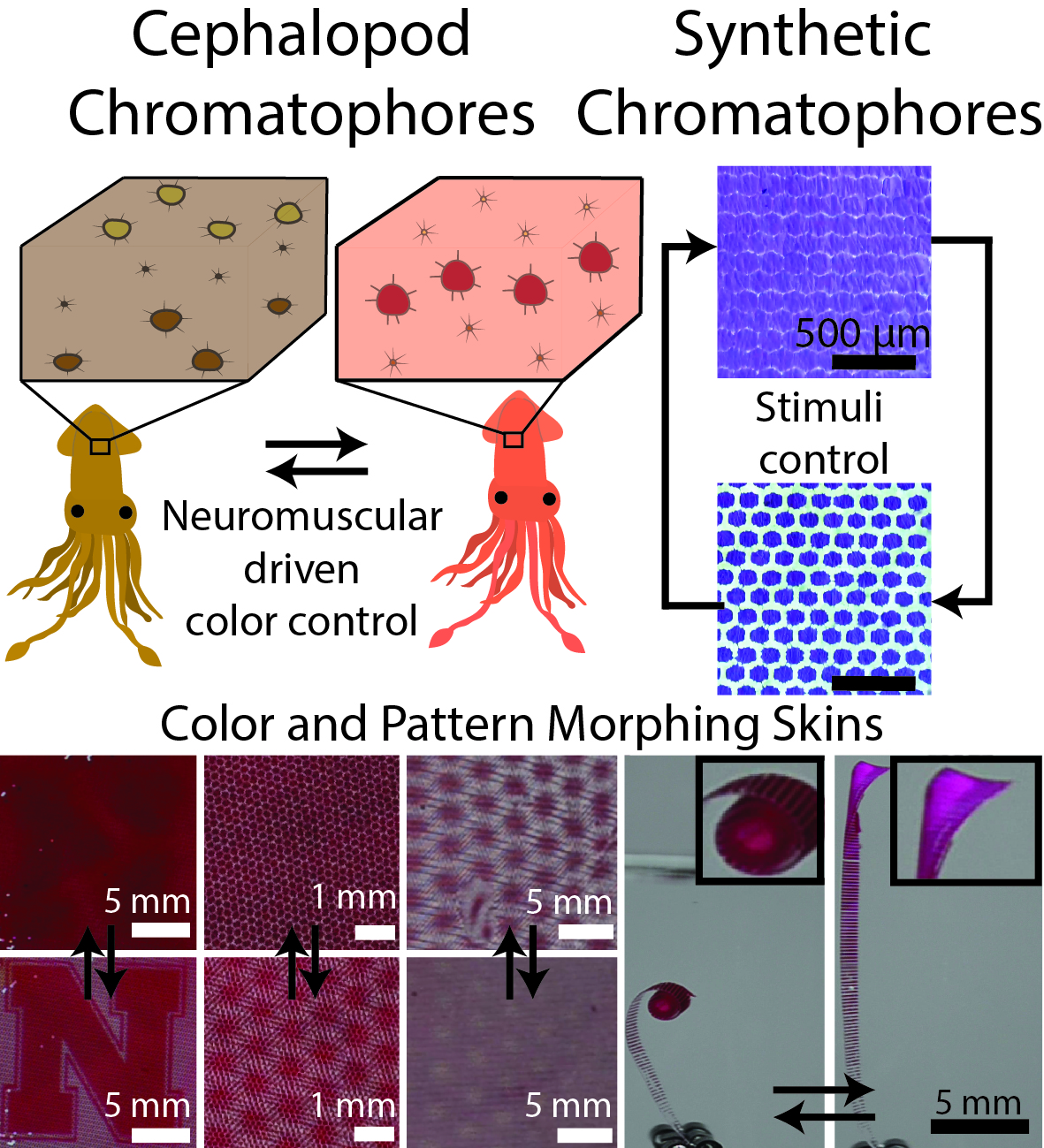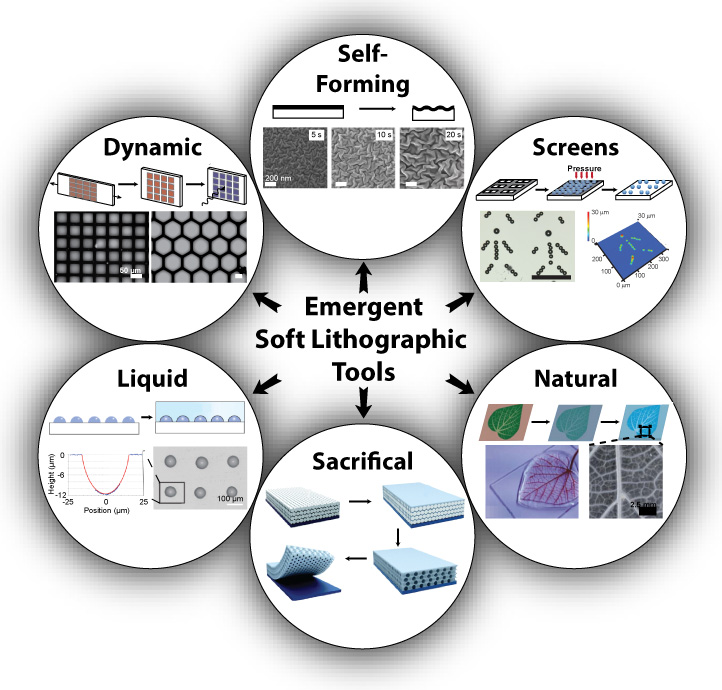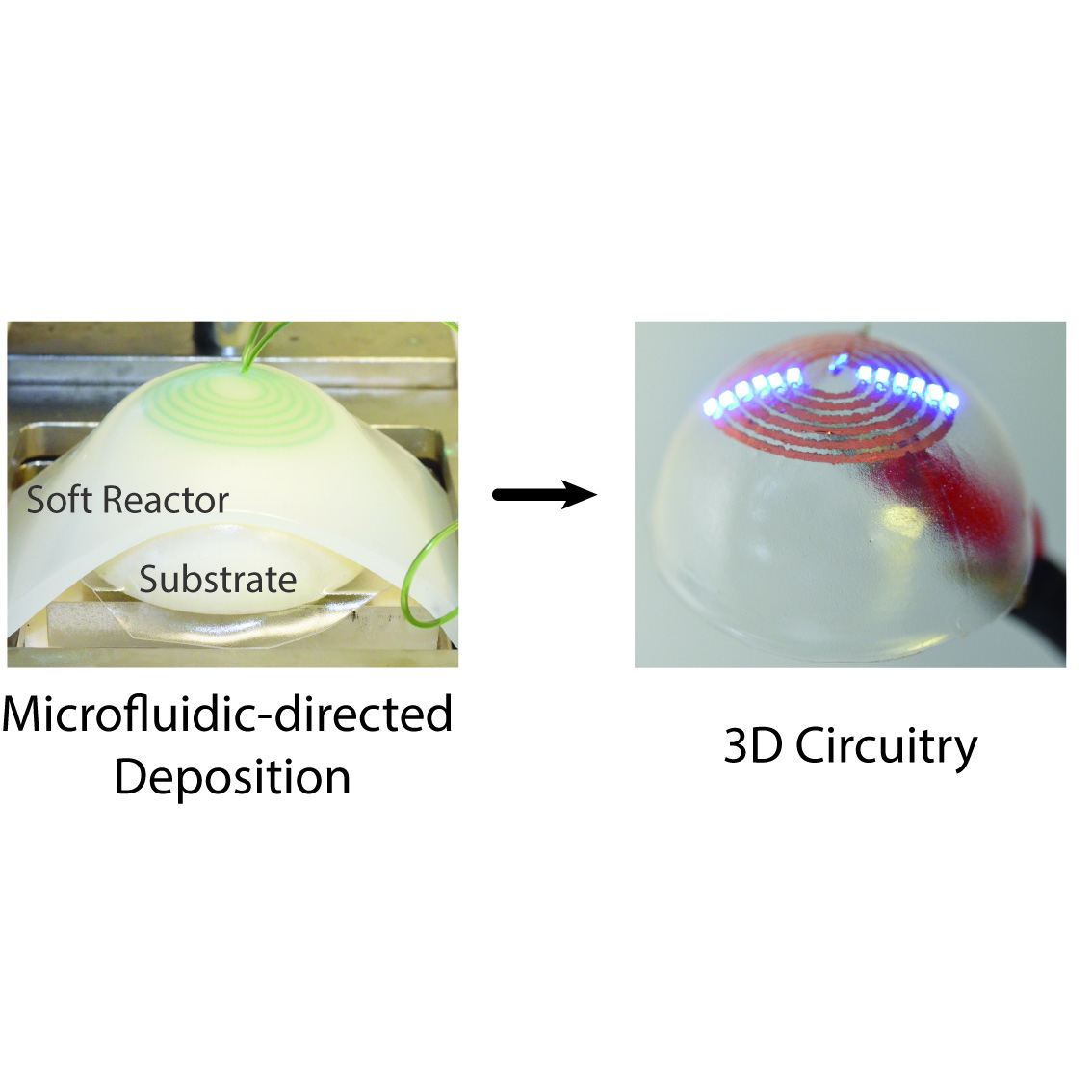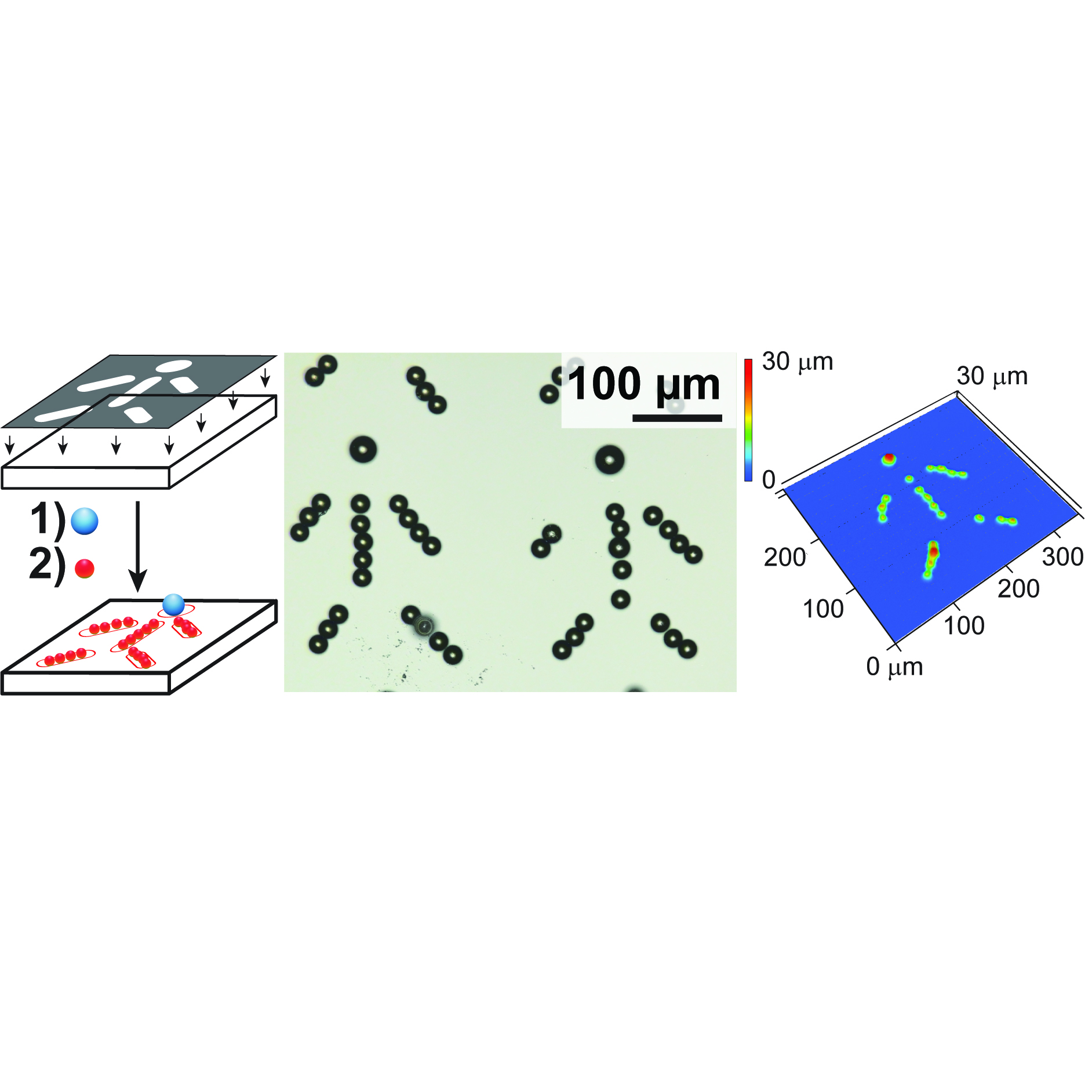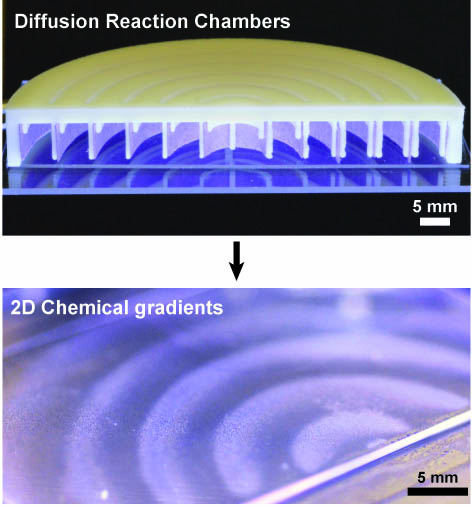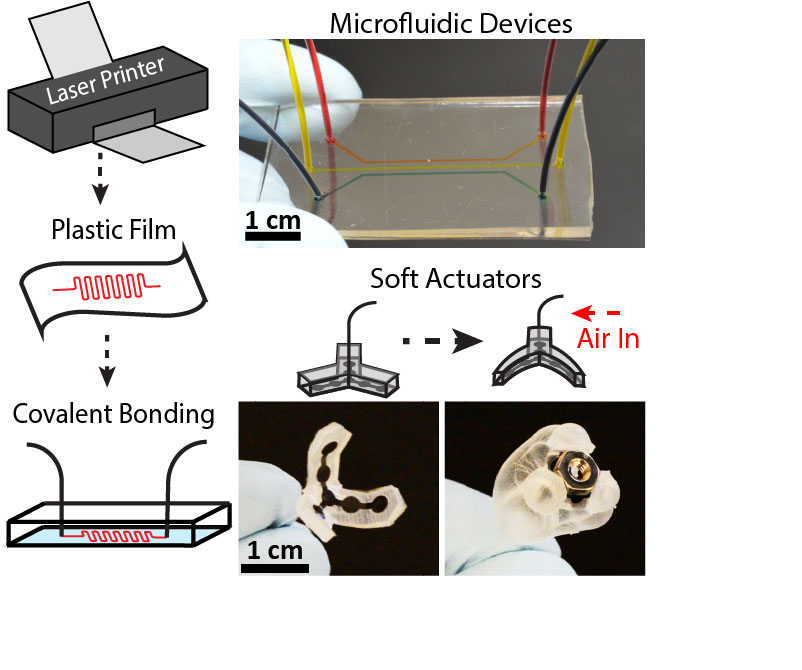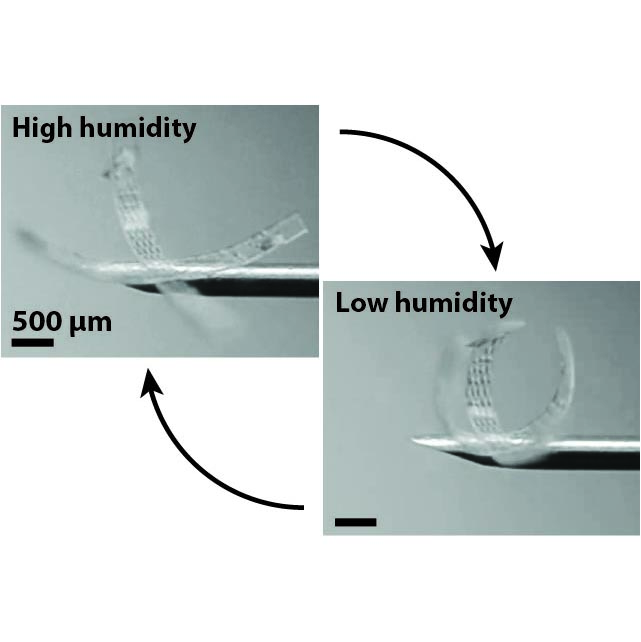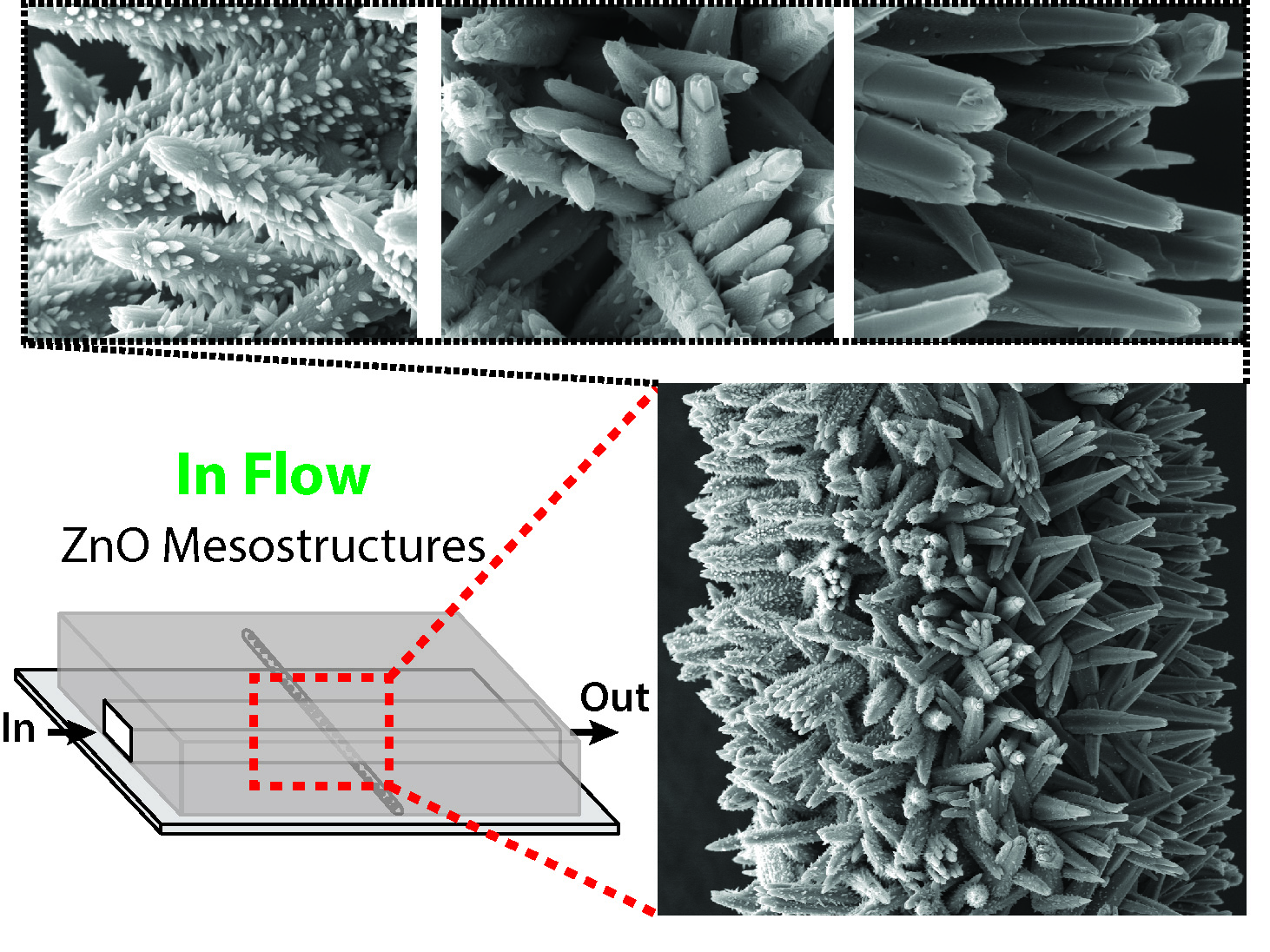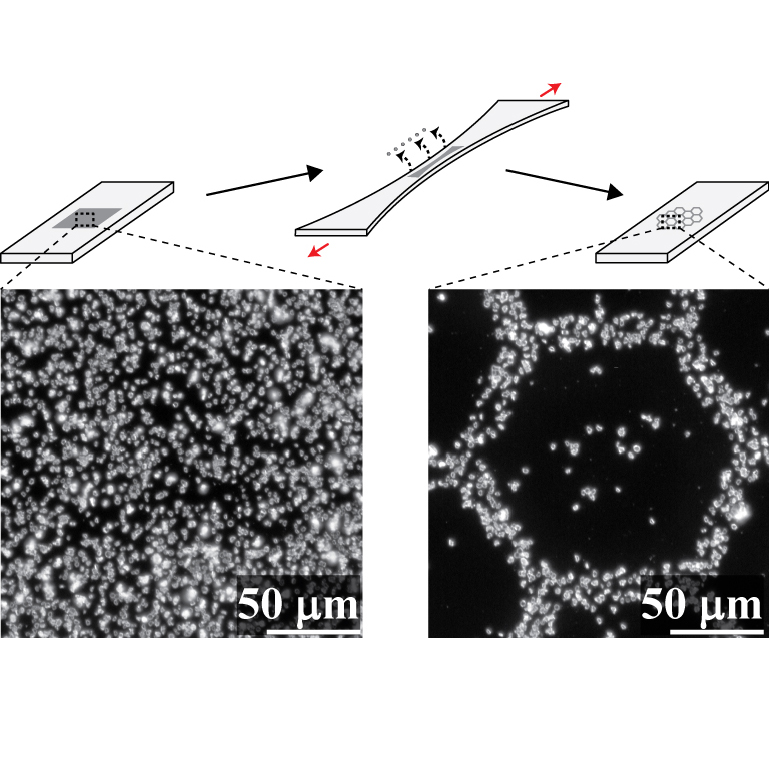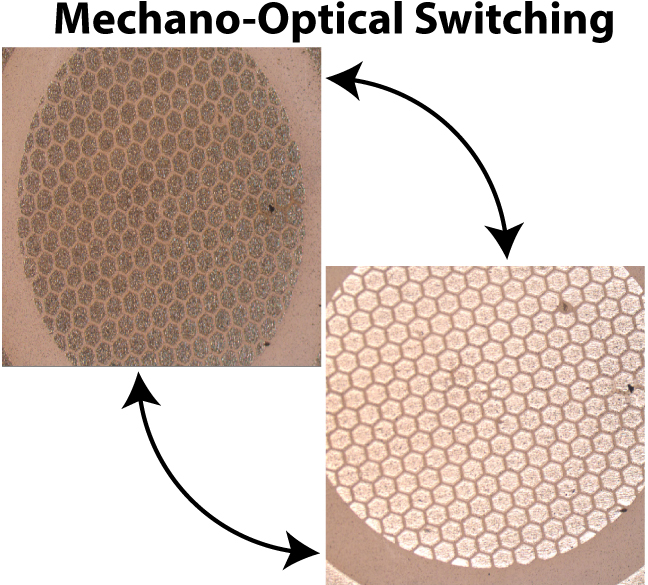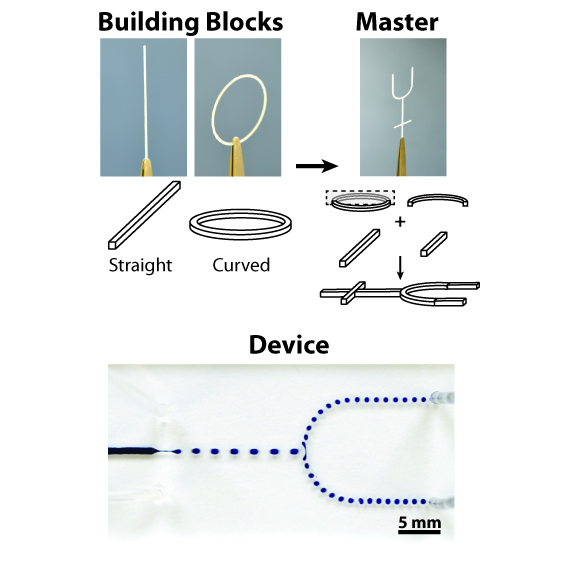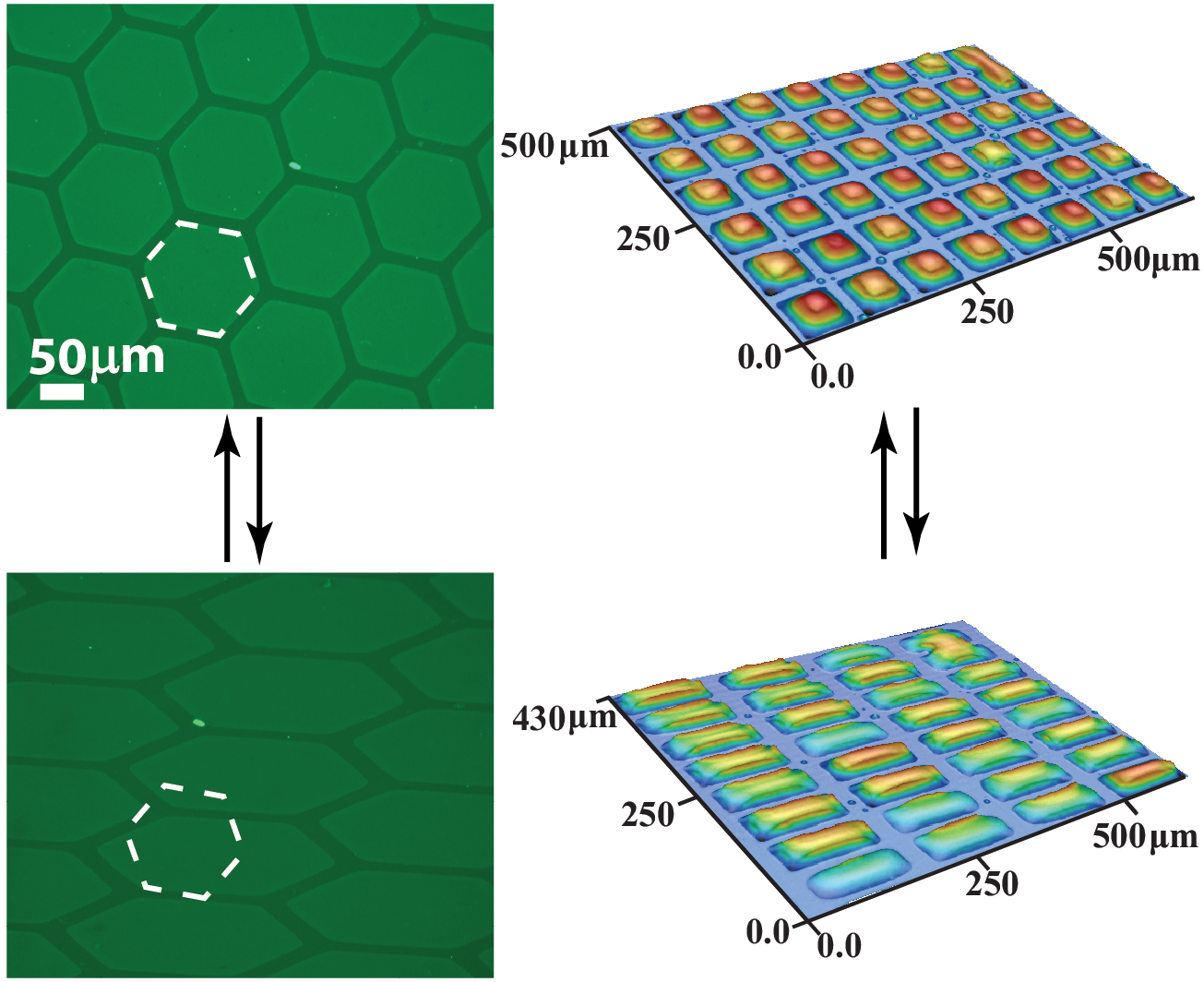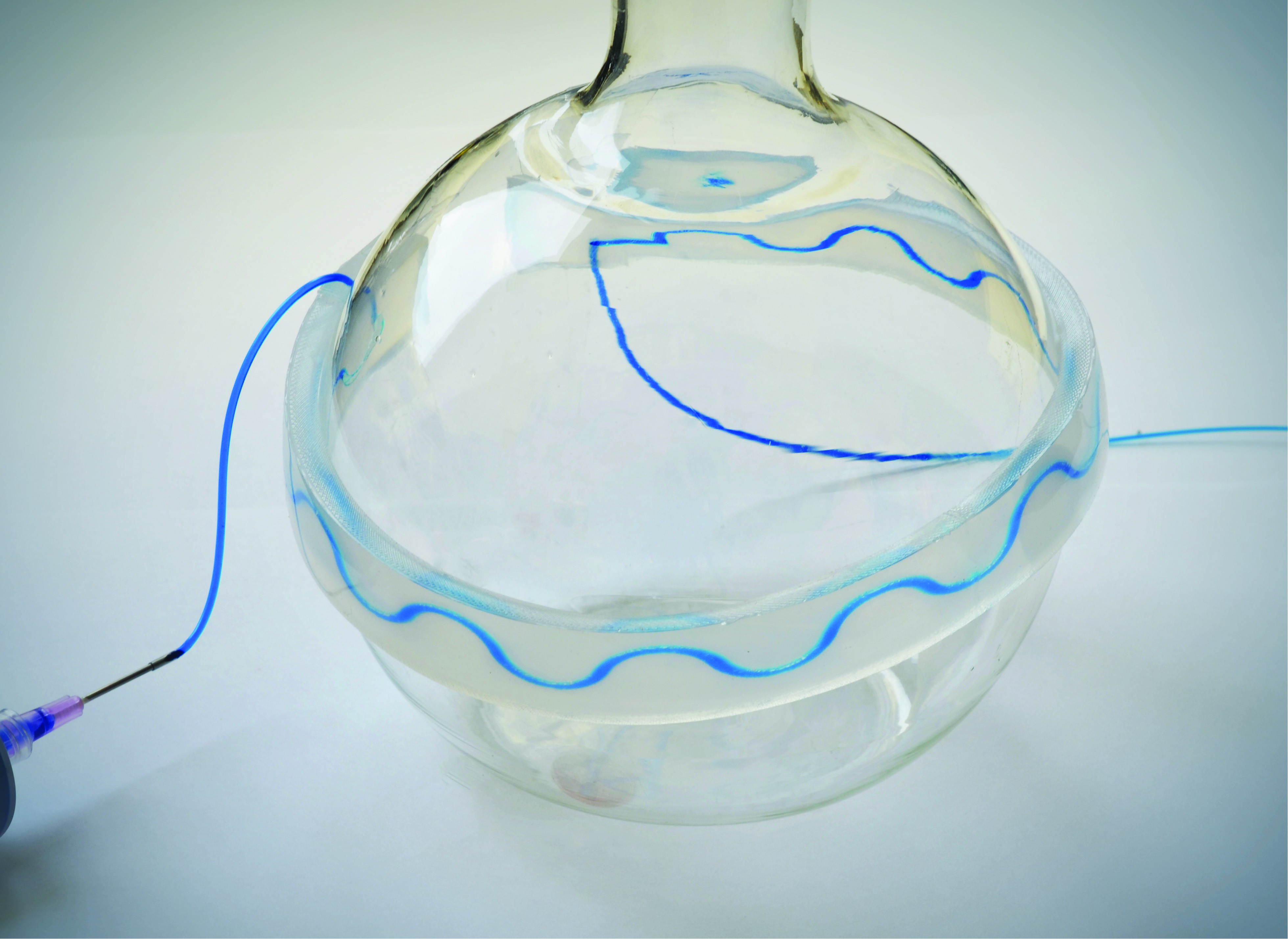My group applies classical concepts in surface chemistry and polymer mechanics to enable the design and synthesis of new materials with mechanically adaptive surface chemistry and microstructure. We build these Mechanically Adaptive Surfaces (MechAS, Fig. 1)1 by chemically functionalizing mechanically tunable elastomeric polymers and hydrogels yielding systems with mechano-regulated surface properties (e.g., wettability, adhesion, reactivity, morphology, reflectance, etc.). Our central focus has been to leverage the unique capabilities of MechAS to discover new methods to control (i.e., assemble, manipulate, etc.) nano-/micro-scale structures (comprised of liquids, solids, gels, etc.) rationally, thus enabling new adaptive materials applicable to an array of technologies (Fig. 1).2-8 We are particularly excited by the potential of MechAS to provide pathways toward stimuli-responsive, adaptive materials which address challenges in the realm of soft and biomorphic systems.
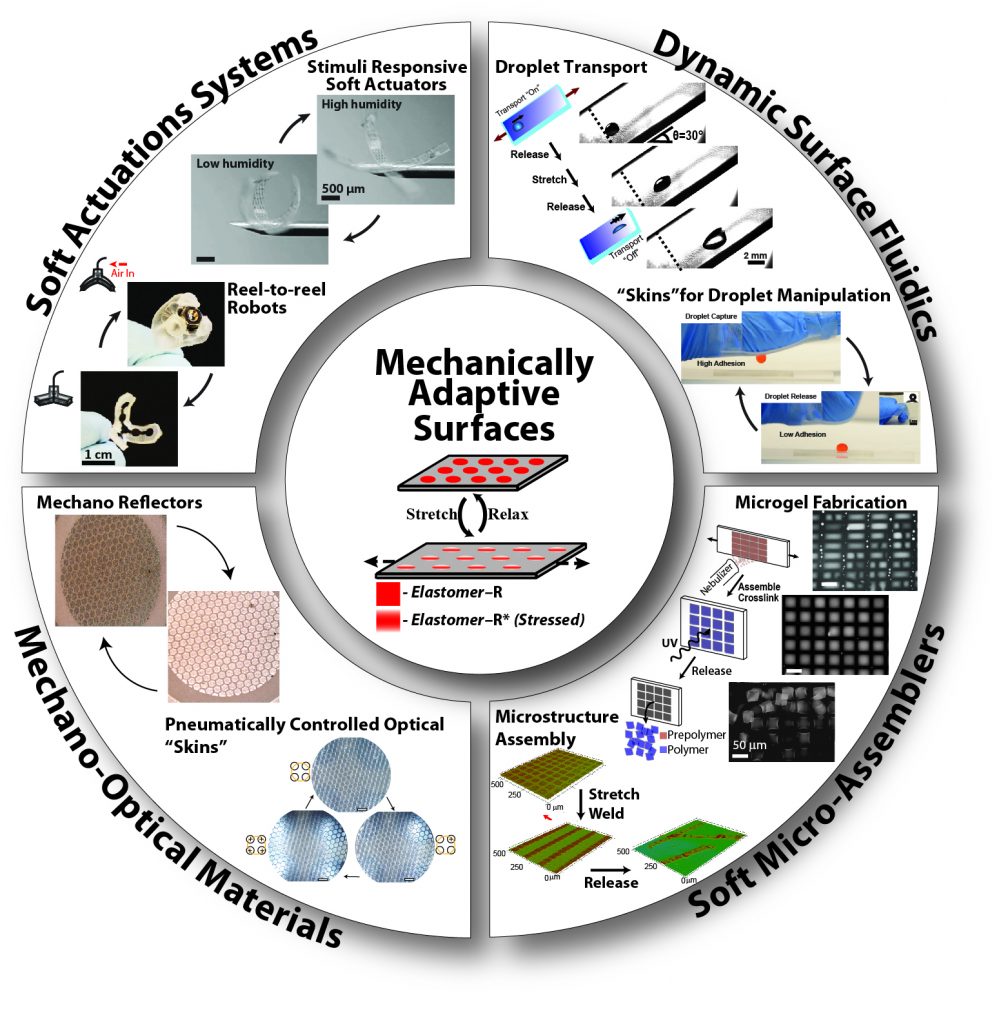
Figure 1. Program Overview. The core research focus of the Morin Lab is on the design and synthesis of materials with Mechanically Adaptive Surfaces (MechAS).1 The unique capabilities of MechAS have enabled new functional structures with applicability to Soft Actuation Systems,6-8 Dynamic Surface Fluidics,2-3,10 Mechano-Optical Materials,4 and Soft Micro-Assemblers.5,7
Select Publications:
- Bowen, J. J.; Taylor, J. M.; Jurich, C. P.; Morin, S. A., Stretchable Chemical Patterns for the Assembly and Manipulation of Arrays of Micro-droplets with Lensing and Micro-mixing Functionality. Adv. Funct. Mater. 2015, 25, 5520–5528.
- Mazaltarim, A. J.; Bowen, J. J.; Taylor, J. M.; Morin, S. A., Dynamic manipulation of droplets using mechanically tunable microtextured chemical gradients. Nat. Commun. 2021, 12 (1), 3114.
- Mazaltarim, A. J.; Torres, A.; Morin, S. A., Mechanically Tunable Superhydrophobic Surfaces Enabled by the Rational Manipulation of Microcrack Networks in Nanoporous Films. Adv. Mater. Inter. 2021, 8 (17), 2100869.
- Taylor, J. M.; Argyropoulos, C.; Morin, S. A., Soft Surfaces for the Reversible Control of Metal Chalcogenide Thin-Film Microstructure. Adv. Mater. 2016, 28, 2595-2600.
- Vinod, T. P.; Taylor, J. M.; Konda, A.; Morin, S. A., Stretchable Substrates for the Assembly of Polymeric Microstructures. Small 2016, 1603350.
- Bowen, J.; Rose, M.; Morin, S., Surface molding of multi-stimuli-responsive microgel actuators. MRS Bull. 2021, 46.
- Bowen, J. J.; Rose, M. A.; Konda, A.; Morin, S. A., Surface Molding of Microscale Hydrogels with Microactuation Functionality. Angew. Chem. Int. Ed. 2018, 57 (5), 1236-1240.
- Taylor, J. M.; Perez-Toralla, K.; Aispuro, R.; Morin, S. A., Covalent Bonding of Thermoplastics to Rubbers for Printable, Reel-to-Reel Processing in Soft Robotics and Microfluidics. Adv. Mater. 2018, 30, 1705333.

